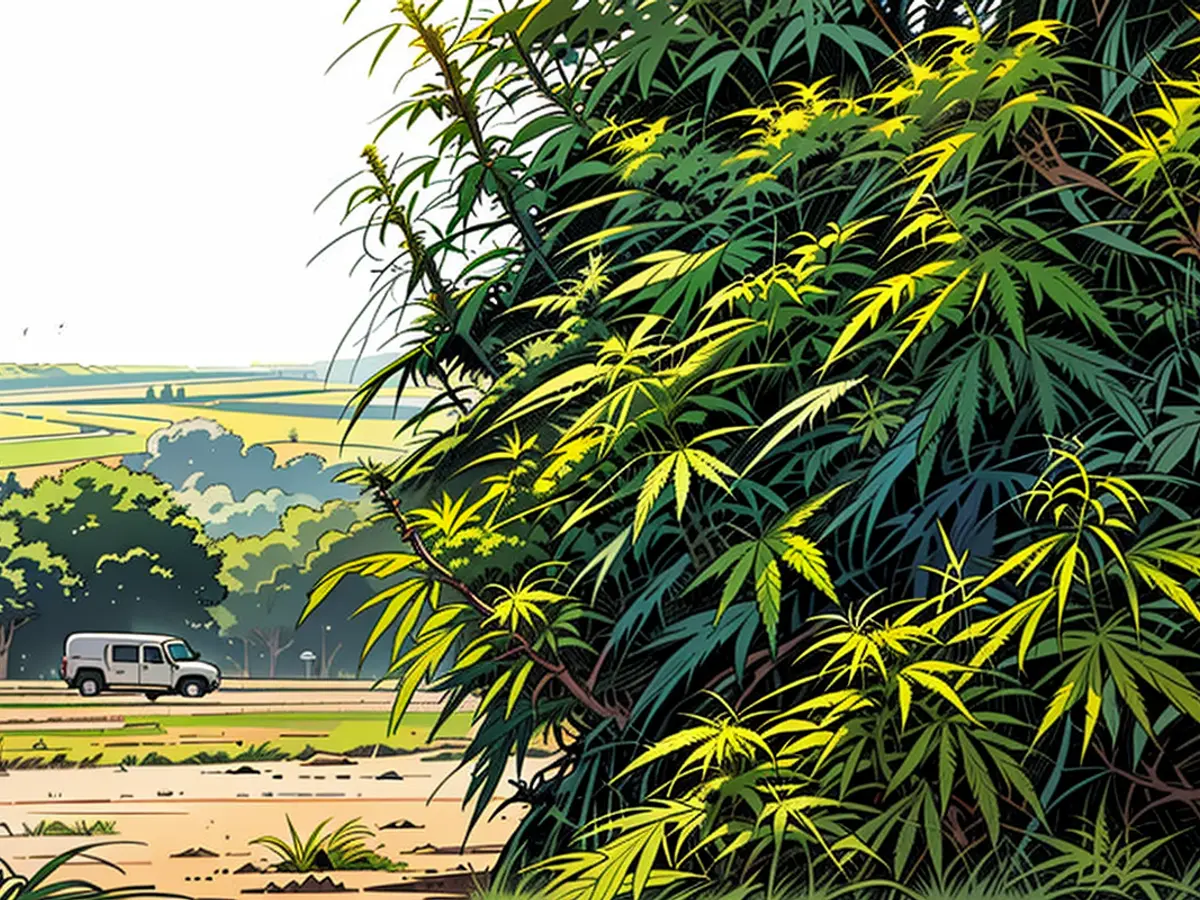- Le Institut fédéral de l'agriculture et de l'alimentation en Allemagne a signalé une augmentation de la gamme de produits alimentaires contenant du chanvre en raison de ses propriétés nutritives bénéfiques.
- Malgré la légalisation des plantes de cannabis pour les adultes en Allemagne, les aliments contenant du THC restent interdits, comme le précise le projet de loi.
- À Berlin, le Ministère fédéral de l'agriculture d'Allemagne a mis en évidence le grand potentiel de croissance du chanvre dans le secteur agricole allemand.
- Les agriculteurs en Europe, y compris en Allemagne, ont été autorisés à cultiver des variétés certifiées de chanvre depuis 1996, avec une limite de THC de 0,3 % dans l'UE.
- La culture de plantes de chanvre à Berlin pour la cosmétique et les textiles a attiré l'intérêt de diverses industries au-delà de l'agriculture, comme des entrepreneurs berlinois.
Agriculture - Crée-t-il de la valeur dans la niche ?
Lundi
At Cannabis plants, it's not just about smoking - it has been legal for adults in Germany for approximately four months. Farmers have been allowed to grow certified hemp varieties for much longer. And there are various commercial applications for textiles, food, or cosmetics. The industry sees potential, but it is still a niche market. The Federal Agriculture Ministry wants to make it easier and more attractive with some new regulations.
Mardi
A law is now intended to expand cultivation opportunities and provide more legal security. The goal is to implement it by early 2025, before the next planting season. However, food containing THC will not be allowed, as explicitly stated in a draft of the law.
Mercredi
Decrease in cultivation area
Farmers have been allowed to grow certified hemp varieties in the EU since 1996, according to the Federal Agriculture and Food Agency. The THC content in the flowers should not exceed 0.3 percent. On the black market, the average THC content is approximately 14 percent, according to the Federal Health Ministry. The total hemp cultivation area in Germany decreased for the first time in a long time last year - to 5,800 hectares, and 643 farmers were active in this field. For comparison, wheat covers 2.9 million hectares, and a less common crop like oats covers 141,000 hectares.
Jeudi
Legal uncertainty so far
The main impetus should be more legal security. A provision is to be removed from the law that also exists in the cannabis legalization law. It states that the use of hemp for intoxicating purposes must be excluded. Farmers and dealers have therefore faced the risk of prosecution, according to the ministry spokesperson. The draft states that there are no proofs for such intoxicating use of hemp, and with the now legal procurement possibilities, it is also finally impossible.
Vendredi
New cultivation option
Additionally, an "Indoor cultivation" in greenhouses is to be allowed. This opens up business opportunities for entrepreneurs in addition to farmers, according to the draft. The historically justified legislative provision that excluded horticultural and viticultural businesses or forestry from hemp cultivation is to be abolished. However, it is initially assumed that only "a small number" of companies will go into business.
Samedi
Farmers see further risks
The Farmers' Association sees greater potential but demands more simplifications. "Hemp is extraordinarily versatile, has many agricultural advantages, and would also contribute to biodiversity," said General Secretary Bernhard Krüsken. However, both the cultivation and the flower must be reported to the Federal Agency, which takes up a lot of time. Additionally, the low THC limit causes uncertainty, as the entire harvest must be destroyed if the limit is slightly exceeded. "Only farmers with strong perseverance or a love for hemp plants take on these risks." The harvest figures for 2023 unfortunately confirmed this assessment.
Dimanche
The ministry highlights the advantageous characteristics of hemp farming for climate and environmental protection. Only very little fertilizers are required, usually no plant protection agents or additional irrigation. Hemp improves the soil by enriching it with nitrogen from the air and provides habitat for insects. Almost all parts of the Plants are utilizable. The range of hemp-containing foods has grown, explains the Federal Institute for Risk Assessment. Hemp seeds, rich in amino and fatty acids, are mostly used - for example, in oil and noodles.








